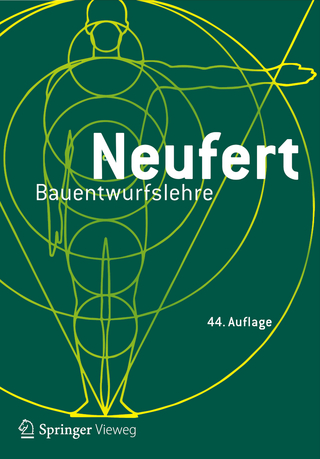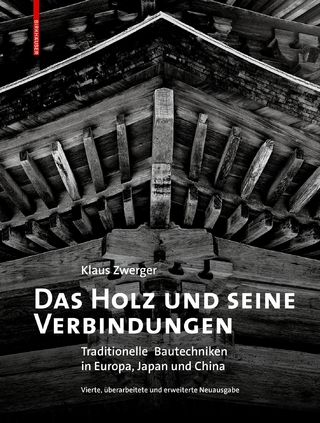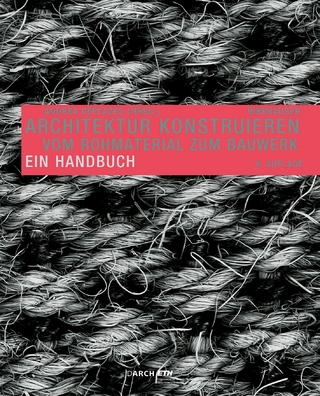
Common Sensing
CRA #3
Seiten
2025
Spector Books OHG (Verlag)
978-3-95905-688-5 (ISBN)
Spector Books OHG (Verlag)
978-3-95905-688-5 (ISBN)
- Noch nicht erschienen (ca. Juni 2025)
- Versandkostenfrei innerhalb Deutschlands
- Auch auf Rechnung
- Verfügbarkeit in der Filiale vor Ort prüfen
- Artikel merken
Common Sensing verbindet Perspektiven von Praktiker·innen und Theoretiker·innen, die sich in ihrer Arbeit mit verschiedenen Arten beschäftigen, ökologische Bedingungen sensorisch-sinnlich wahrzunehmen. Sie fragen, wie Sinn hervorgebracht wird, wenn kollektive Ansprüche formuliert werden und sich Widerstand formiert. Die Beiträge entfalten ein breites Spektrum von Zusammen- hängen: Waldbrandkontrolle in China Muerta, Chile, die Wiederanpflanzung des Feigenkaktus sabr in Palästina, der Anbau von lokalem bäuerlichem Saatgut in Süditalien, gemeinschaftliche Spaziergänge durch Karatschi und Graswurzel-Initiativen gegen Geothermie-Anlagen in der Türkei. Dabei wird untersucht, wie diese Praktiken der Alltagsvernunft auf technischere Formen der Sensorik reagieren – etwa auf Röntgenbilder, Satellitenüberwachung, Bodenradar, Bioakustik und Smart- Sensor-Technologie. Wie kann ein polyperspektivisches Ensemble von Methoden und Techniken dazu beitragen, ein neues „sensorisches Gemeingut“ zu etablieren, das seine Grundlagen in einer Ethik der Fürsorge hat und geleitet wird von einem planetarischen Sinn fürs Gemeinwohl?
Das Herausgeber·innen-Team der Reihe besteht aus Mitarbeiter·innen des Centre for Research Architecture (CRA), die mit gemeinsamen Erkenntnissen und Interessen die Themen der jeweiligen Bände bestimmen. Ricardo Badano ist Architekt und Wissenschaftler. Er lehrt am Royal College of Art und ist PhD-Kandidat am CRA. Tomas Percival ist Künstler, Wissenschaftler und Autor. Er hat am CRA unterrichtet, wo er auch seinen PhD abgeschlossen hat. Aslı Uludağ, Mitherausgeberin dieser Ausgabe, ist Künstlerin und PhD-Kandidatin am CRA.
Common Sensing brings together practitioners and thinkers whose work engages with the relation- ships between different modes of sensing environmental conditions and the role of sense-making in producing collective claims and forms of resistance. Contributions move across a diverse set of contexts: from managing forest fires in China Muerta, Chile, replanting sabr, a prickly pear cactus in Palestine, the cultivation of peasant seeds by farmers in southern Italy, to communal walking projects in the settlements of Karachi and grass roots campaigns opposing geothermal energy production in Turkey. Contributions also explore how these everyday ‘common sense’ responses to local conditions operate alongside more technical forms of sensing, including X-ray imaging, satellite monitoring, ground penetrating radar, bio-acoustic recording, and smart sensor technologies. How might a poly-perspectival set of methodologies and techniques enable the production of a new ‘sensory commons’ that is grounded in an ethics of care and guided by a planetary sense of communal well-being?
The editorial team is composed of staff and researchers based at the Centre for Research Architecture (CRA), whose collective insights and interests guide each thematic book in the series. Riccardo Badano is an architect and researcher. He is a tutor at the Royal College of Art and a PhD candidate at the CRA. Tomas Percival is an artist, researcher, and writer. He was previously a lecturer at the CRA, where he also undertook his PhD. Susan Schuppli is an artist-researcher and writer. She is professor and director of the CRA and board chair of Forensic Architecture. Aslı Uludağ, associate editor for this issue, is an artist and PhD candidate at the CRA.
Das Herausgeber·innen-Team der Reihe besteht aus Mitarbeiter·innen des Centre for Research Architecture (CRA), die mit gemeinsamen Erkenntnissen und Interessen die Themen der jeweiligen Bände bestimmen. Ricardo Badano ist Architekt und Wissenschaftler. Er lehrt am Royal College of Art und ist PhD-Kandidat am CRA. Tomas Percival ist Künstler, Wissenschaftler und Autor. Er hat am CRA unterrichtet, wo er auch seinen PhD abgeschlossen hat. Aslı Uludağ, Mitherausgeberin dieser Ausgabe, ist Künstlerin und PhD-Kandidatin am CRA.
Common Sensing brings together practitioners and thinkers whose work engages with the relation- ships between different modes of sensing environmental conditions and the role of sense-making in producing collective claims and forms of resistance. Contributions move across a diverse set of contexts: from managing forest fires in China Muerta, Chile, replanting sabr, a prickly pear cactus in Palestine, the cultivation of peasant seeds by farmers in southern Italy, to communal walking projects in the settlements of Karachi and grass roots campaigns opposing geothermal energy production in Turkey. Contributions also explore how these everyday ‘common sense’ responses to local conditions operate alongside more technical forms of sensing, including X-ray imaging, satellite monitoring, ground penetrating radar, bio-acoustic recording, and smart sensor technologies. How might a poly-perspectival set of methodologies and techniques enable the production of a new ‘sensory commons’ that is grounded in an ethics of care and guided by a planetary sense of communal well-being?
The editorial team is composed of staff and researchers based at the Centre for Research Architecture (CRA), whose collective insights and interests guide each thematic book in the series. Riccardo Badano is an architect and researcher. He is a tutor at the Royal College of Art and a PhD candidate at the CRA. Tomas Percival is an artist, researcher, and writer. He was previously a lecturer at the CRA, where he also undertook his PhD. Susan Schuppli is an artist-researcher and writer. She is professor and director of the CRA and board chair of Forensic Architecture. Aslı Uludağ, associate editor for this issue, is an artist and PhD candidate at the CRA.
| Mitarbeit |
Designer: Ariadna Serrahima |
|---|---|
| Verlagsort | Leipzig |
| Sprache | englisch |
| Maße | 160 x 230 mm |
| Themenwelt | Sozialwissenschaften |
| Technik ► Architektur | |
| Schlagworte | Ethik • Gemeinwohl • Sensorik • Umwelt |
| ISBN-10 | 3-95905-688-5 / 3959056885 |
| ISBN-13 | 978-3-95905-688-5 / 9783959056885 |
| Zustand | Neuware |
| Informationen gemäß Produktsicherheitsverordnung (GPSR) | |
| Haben Sie eine Frage zum Produkt? |
Mehr entdecken
aus dem Bereich
aus dem Bereich
Grundlagen, Normen, Vorschriften
Buch | Hardcover (2024)
Springer Vieweg (Verlag)
159,99 €
Traditionelle Bautechniken in Europa, Japan und China
Buch | Hardcover (2023)
Birkhäuser (Verlag)
68,00 €
Vom Rohmaterial zum Bauwerk. Ein Handbuch
Buch | Softcover (2022)
Birkhäuser Verlag GmbH
68,00 €


